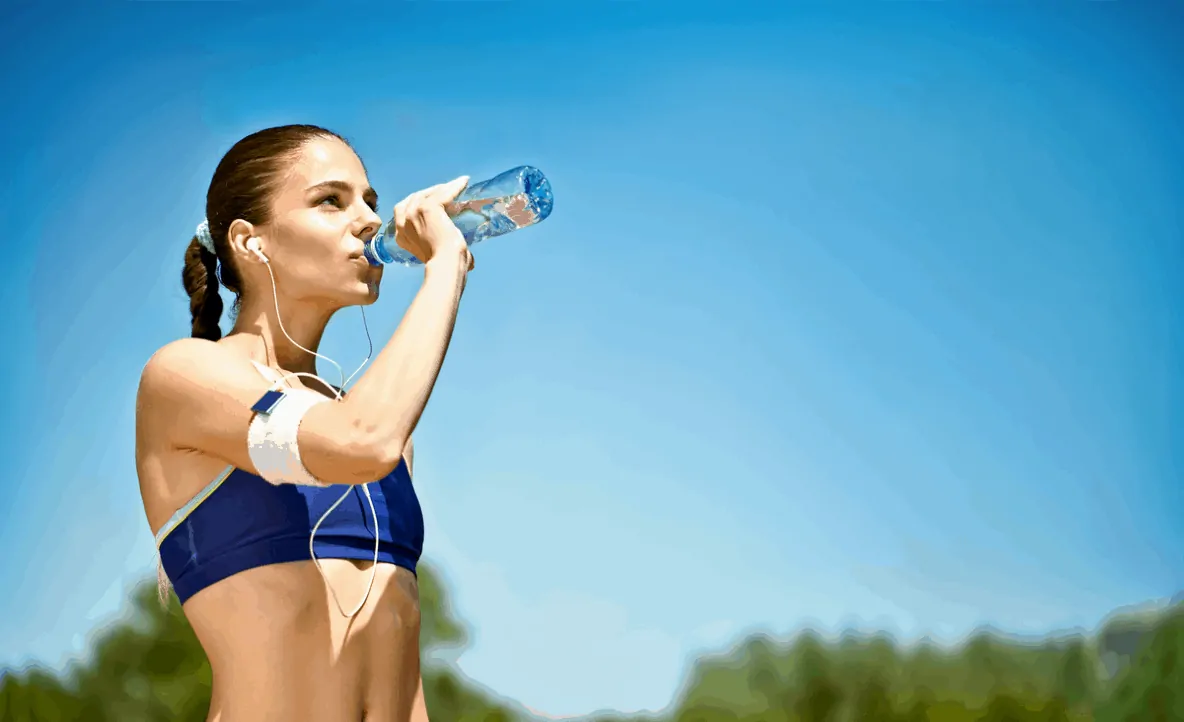Hydration is a crucial component of exercise and performance. While water is the most traditional and accessible form of hydration, sports drinks often do a better job of replacing the nutrients you lose when you perform intense exercise, especially in hot weather.
Sports drinks such as Gatorade, Powerade, Isostar, and Pokari contain essential nutrients (electrolytes, sugar, potassium, and sodium). These nutrients are critical when it comes to recovery and hydration.
4 Potential Benefits of Sports Drinks
- Replenishes Energy
- Prevents Dehydration
- Provides Electrolytes
- Easy Source of Carbohydrates
Electrolytes work by maintaining the balance of ions within the body. These ions come in the form of minerals that are easy for the body to absorb. Ion balance is vital for the functioning of the brain, muscles, and nerves. Any imbalance within your body will lead to an electrolyte deficiency, which will affect your ability to perform at a high level.
There are many kinds of electrolytes. The most common examples include sodium, potassium, phosphate, chloride, magnesium, and calcium. These electrolytes, as well as carbohydrates, help athletes rehydrate and refuel during exercise. In recent times, athletes have favored sports drinks over electrolytes, which, in turn, has helped sports drinks become more popular.
There are many claims that sports drinks hydrate better than water due to sports drinks additional ingredients: the carbs provide energy, and the electrolytes regulate fluid balance within the body.
One study conducted by the University of California at Berkeley found that athletes and children who engaged in vigorous and prolonged physical activity for more than an hour benefited more from sports drinks than water.
However, the Berkeley study noted that the majority of people who consume sports drinks aren’t athletes. And thus we introduce the main problem: most people who take sports drinks don’t need them.
Sports Drinks and Hydration
Research has discovered that water enhanced with electrolytes can benefit athletes by replenishing energy, electrolytes, and fluid that’s lost during exercise.
The American College of Sports Medicine found that a 1-2% water loss in the body can lead to a decrease in focus, speed, and strength. Sweat contains water and electrolytes such as magnesium, calcium, and a large amount of sodium. On average, with every liter of sweat, people lose about 1 gram of sodium.
If you exercise in hot environments for more than one hour, or if you tend to sweat a lot, it’s good to consume sports drinks rather than water. However, keep in mind that sports drinks are for athletes, not people who remain sedentary.
During sickness, it’s good to use an oral rehydration solution to prevent dehydration. Oral rehydration solutions are easy to digest, come in specific, child-friendly portions, and offer electrolytes, carbs, and water.
Sports drinks are similar to rehydration solutions; however, sports drinks contain a high amount of sugar. You should be aware that even in adults, sports drinks may not be able to treat severe dehydration. If you can’t keep fluids down or if your diarrhea lasts longer than 24 hours, you should seek medical advice.
Safety and Side Effects
Non-athletes who drink at least one sports drink a day, often consume too many carbohydrates (making the non-athlete fatter, not healthier). If you’re not exercising enough for your body to burn the high amounts of sugar present in sports drinks, it’s easy to gain weight.
For example, a 20-ounce serving of Gatorade Thirst Quencher contains 36 grams of sugar. While that’s less sugar than soda, it doesn’t mean it’s healthy. Researchers from Berkeley University state that the amount of sugar in sports drinks is one factor that contributes to the current child obesity epidemic.
Recommended Dosage
Compared to water, sports drinks often do a better job of replacing the nutrients you lose when you perform exercise. But there’s a downside…
Although sports drinks offer electrolytes, they also contain a high amount of sugar and calories (a 20-ounce bottle of Gatorade packs almost as much punch in terms of sugar as a bottle of soda). If you consume sports drinks, it’s essential to make sure you exercise frequently and limit your intake of sports drinks to minimal doses.
Effectiveness of Sports Drinks
While sports drinks can be effective for exercise, they are not the best way to keep the body hydrated. Water enhanced with electrolytes is a more effective way to rehydrate if you want to replenish the essential minerals your body needs.
Sports drinks are only useful when you exercise for longer than one hour, sweat a lot, experience diarrhea or vomiting, or exercise in hot conditions. It’s not a good idea to consume sports drinks outside of intense exercise, hot weather, and illness. When it comes to regular hydration, plain water is sufficient.

